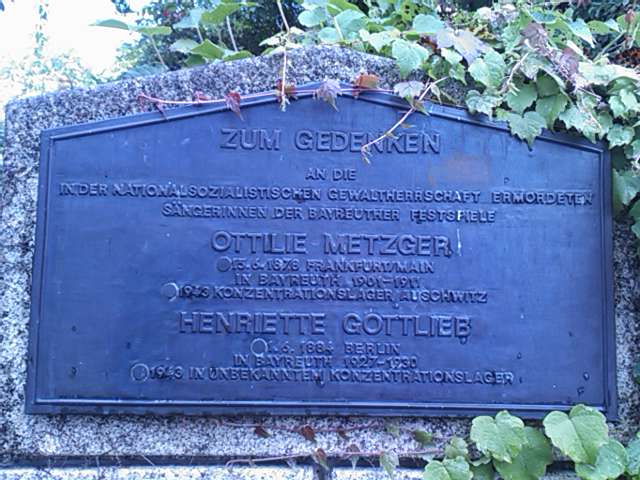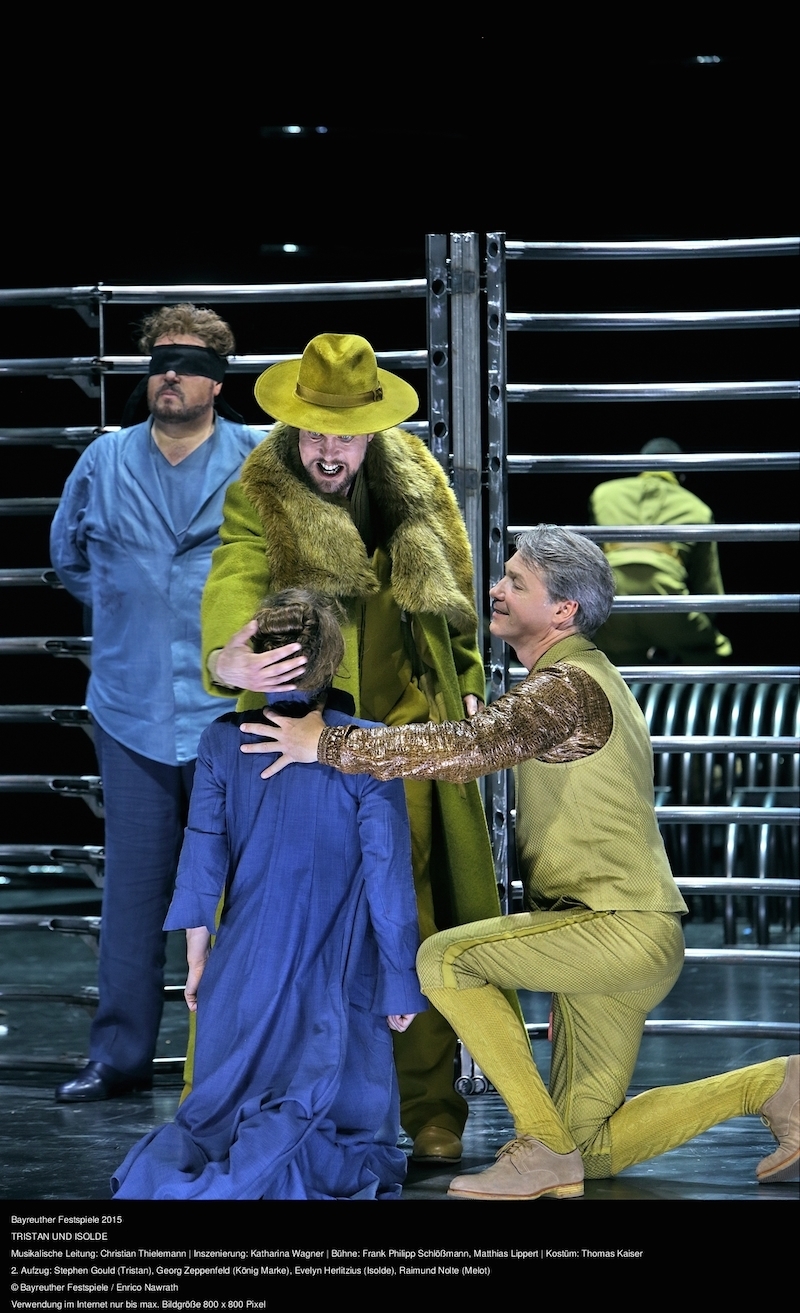© Enrico Nawrath
Bayreuth, 7 augustus 2015
Christian Thielemann in top form in Bayreuth ‘Tristan und Isolde’
The production of ‘Tristan und Isolde’ of the 104th Bayreuth Festival is the best achievement of the festival in years, even though this says more about the previous output of Bayreuth than something about the current production.
Every year the Bayreuth Festival sets one new production of an opera by Richard Wagner (1813-1883) and this year ‘Tristan und Isolde’ had its turn. The new production is a staging by Katharina Wagner, the great-granddaughter of the composer. It is the second production directed by Katharina Wagner to Bayreuth after her ‘Meistersinger von Nürnberg’ in 2007. And this ‘Tristan und Isolde’ is her testcase, for from september 2015 she is – after the departure of her half-sister Eva Wagner-Pasquier – the exclusive leader of the festival.
The staging of ‘Tristan und Isolde’ is above all decorative and tranquil. There are onsets not be extended and then breaking down in loose ends. The first act takes place on a labyrinth of stairs where Isolde finds Tristan. She forces him into a kiss, causing to take away the tension between Tristan and Isolde that should have existed in the rest of the first act. This Tristan and Isolde want to stay alive and they do not drink the Todestrank, but empty it in their hands. Unfortunately, the pushed voice of replacing soprano Evelyn Herlitzius is unsuitable for Isolde. This Isolde is an Elektra, constantly under power and does not have the warmth that Eva-Maria Westbroek put into the role in Dresden 2013. A painful moment was, moreover, the failing high B of Herlitzius on “Mit ihr gab er es preis!”. Stephen Gould sings Tristan controlled and in the head register well wide, even if one finds in him no great psychological portrayal. Iain Paterson brought a solid, crisp Kurwenal and Christa Mayer is a real Wagnerian mezzo-soprano, who outlines Brangäne vocally intensive, differentiated and colourful. Unfortunately she is drawn by Katharina Wagner as a tart.
In the second act one stands in a prison dungeon with torturous spotlights (“O dieses light!”). During “O sink hernieder” Isolde and Tristan sing with their backs to the audience and watch the projection of two individuals who enter a lighted tunnel. King Marke (a slender basso cantante of Georg Zeppenfeld) like an angry father already observes the couple during the love duet – by the way including the complete Tag und Nacht scene – and him watching does not fit his surprise and his sympathetic music in the finale II (also without cuts to the music). And also Brangäne’s warning for Marke is then in fact unnecessary. Then Isolde and Tristan cut their wrists and eventually Melot in the final II stabs a blindfolded and handcuffed Tristan in the back. In what respect, “Wehr dich Melot!”?
Kareol in the third act has been reduced to a nihilistic scene, with reminiscences of Wieland Wagner. Here Isolde appears in various guises during the fevered hallucinations of Tristan. It is the best act of the staging. Stephen Gould here still has admirable reserves for the superhuman, demanding third act, also without cuts. In the finale there is a clumsy little fight scene, Marke stuffs his crotch in the face of Isolde and deprives her of her Liebestod as she is roughly “abgeführt” by him. Despite these loose ends the staging peaceful and structured and it offers enough room to the singers. And there is something to be said for this too…
Christian Thielemann is the star of the evening. The new Musikdirektor of the Bayreuth Festival here conducts his first ‘Tristan und Isolde’ since Vienna 2003 and turns fine intertwined soundcolors through the dark lid acoustics of the Bayreuther Festpielhaus. Thielemann does not lose itself in the details and the sound frenzy as he used to do, but more often leads with intensity and elegance, now showing modesty, then again with free hand exciting large arches.
The production of ‘Tristan und Isolde’ of the 104th Bayreuth Festival is the best achievement of the festival for years. However, visitors to Bayreuth will have to deal with two disappointments. In the first place is Villa Wahnfried renovated beyond recognition and the small rooms of the basement with the dozens of photos of the old singers have made way for black and shiny walls and books.  And Furthermore, the plaque for the Jewish Bayreuth-singers Henriette Gottlieb and Ottilie Metzger, who were murdered by the Nazis, has been removed from the park of the Festpielhaus. For the present it is unclear why…
And Furthermore, the plaque for the Jewish Bayreuth-singers Henriette Gottlieb and Ottilie Metzger, who were murdered by the Nazis, has been removed from the park of the Festpielhaus. For the present it is unclear why…
